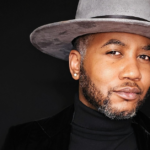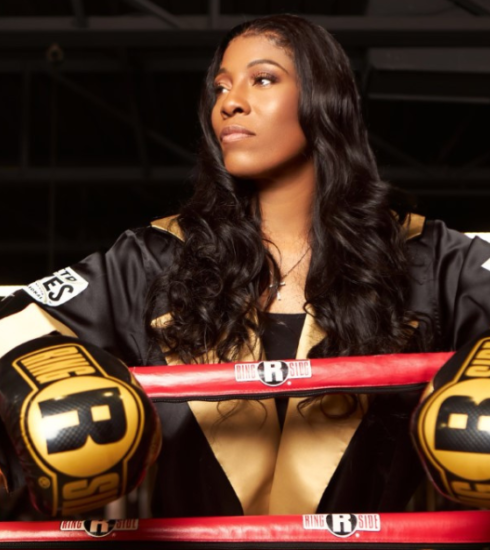Cynda Williams discusses how acting saved her life and therapy helped her survive!
Cynda Williams has had a successful acting career spanning several decades, with notable roles in projects such as Mad As Hell (2021) and One False Move (1992). However, it was her role in the film MO: Better Blues (1990) that served as a catalyst for her burgeoning acting career. She is not only a talented actress, but also a skilled singer, making her a true entertainer and performer. She opened up to me about both the positive and negative aspects of her journey in the industry and in life. We became personal as she shared about a significant event from her early life that had a profound impact on her as an adult. However, it was through her involvement in acting that she discovered a source of strength and therapy that ultimately aided her in overcoming the trauma she experienced. As she continues her healing journey, she serves as a beacon of hope and inspiration for others, radiating light in their lives. She serves as a reminder that it is acceptable to seek help even in the midst of trauma. There is no need for us to feel ashamed or scared.
Peebles: Cynda, I have noticed you get a lot of quality roles how do you manage to do that?
Cynda: I think it was because I was so fortunate off the top that getting the movie MO Better Blues gave me a high-quality experience right away because the role was a lot fuller before the editing process it was a lot more to the character. You saw more of her in her personal life so that opened that door, and my next move One False Move introduced the actress in me, not the cute girl that can sing but an actress, and since those two came together showed people that I can act. A lot of times the roles for women do not show us in the complexity we are. Fortunately for me, One False Move was a beautifully written script by Billy Bob Thornton, a great director. So, I had a great beginning at the same time I had done plenty of projects that were terrible as well if I’m going to be real because there were times when I needed the money.

Peebles: When did you start singing, did you come from a musical Family?
Cynda: Yes, I came from a musical family. Both my parents were singers in the church in the 50’s my dad was in the Bebop group kind of thing the ones on the corner he and his brother sang together. My mom had a beautiful alto voice my father beautiful baritone and tenor music was a huge part of our household. But my uncle was a professional singer and he lived with us. He self-taught himself and recognized my singing talent at around 5 years old. He was my first mentor and is still my mentor to this day.
Peebles: You mention something about a strike who’s on strike?
Cynda: The writers are on strike still; the directors have finalized their contract the actors are on deck to strike if we don’t get the deal we want. So, I’m hoping the actors can come to some kind of terms. It’s unbelievable how much the industry has changed. I was never a rich person or superstar but, I was a working actor now you cannot live unless you’re one of the one percent because the rules have changed with the computer and streaming. I still continue to sing and accept quality film, television, and theater roles. There are certain boundaries I will not cross for instance nudity, the sexuality I had meant something to the characters was needed to tell the story. So, I never wanted to do anything that overused sexuality in a crude way. I also never wanted to be part of a story that did not help others. I did not want to do a script that did not give somebody hope or a lesson.

Peebles: How has acting enhanced your way of life?
Cynda: It was a lifesaver for me. I was molested as a child. I wore the neon sign over my head for a long time. I was the only girl in my family for fourteen years next to the oldest in our generation and my family is very patriarchal so, women were to be seen not heard. I was trained that way and I was in a very religious family my father was not religious at all but, my grandfather was a pastor of a church in Muncie Indiana. I was hearing a lot of negative things about sex like you’re going to hell so when those horrible things were happening to me, I didn’t tell anybody. I started talking out loud to myself I was always alone unless I was performing. I would have a full-blown conversation with me and Jesus if anyone would hurt my feelings, I would act off the whole scene of what I was saying to them or what they were saying to me I would be multiple characters. I did this all the time, so I was acting. You can play different characters and act out the darkness or light in you.
Peebles: How old were you when you were sexually abused?
Cynda: The first time it happened I was 5 years old. That lasted for about a year, and it wasn’t family it was care giver’s family. That started a roll of abuse so players can read when someone thinks they are a victim. They recognized that so, you attract that because you think that’s what you deserve. I went through a lot of that for quite some time until I recognized the pattern in myself, and I started reading all these books that were helping me and eventually started therapy which started a healing journey for me.

Peebles: Are you saying that acting along with therapy helped you heal?
Cynda: Yes, it was therapy, that’s how I survived until I started getting therapy. I was about 28 or 29 when I started therapy. People don’t believe it now because I have found my voice and I’m very comfortable in my skin. During the first 8 or 9 years of my career, I would hide in a corner, I had my book, I would even go to parties, sit in a corner and read my book. People had stopped inviting me to parties and I didn’t know how to talk to people. Acting was my first form of therapy, it was therapy I began as a child. I was self-healing and didn’t know it until I finally found my voice.
Photo credits
Hyde Park, Andre King, and MUA Monique Bridgewater





